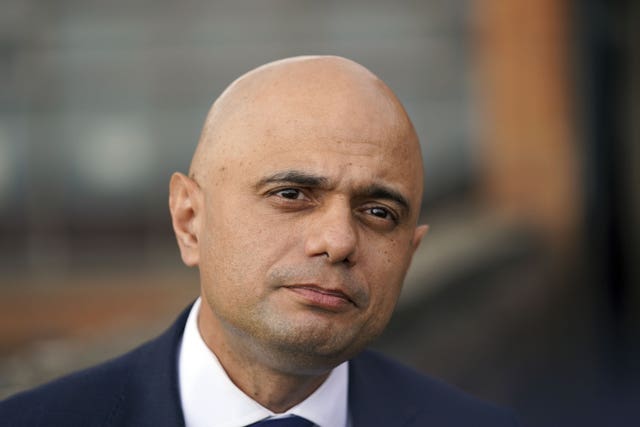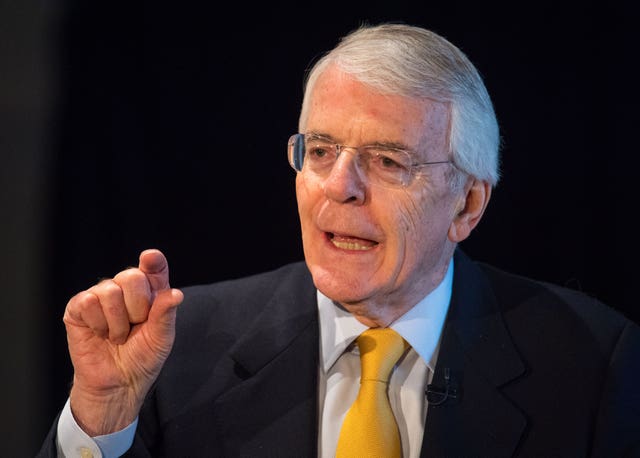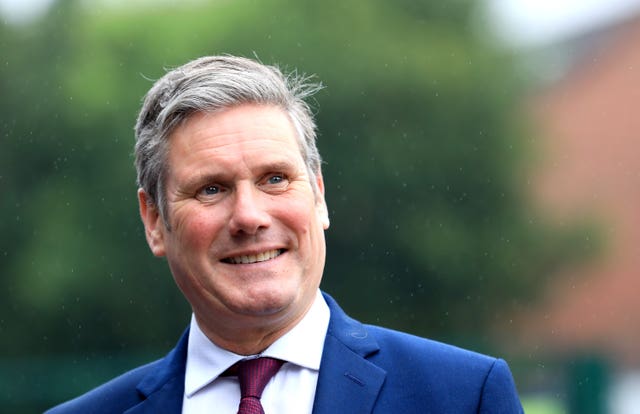
Shelagh Fogarty 1pm - 4pm
6 September 2021, 07:04

Conservative former prime minister Sir John Major warned against the move targeting workers and employers by arguing it is ‘regressive’.
Boris Johnson remained locked in talks over how to fund social care reforms as Tory grandees warned hiking National Insurance would unfairly hit young and lower income workers.
Former chancellor Lord Hammond told the Prime Minister there will be a “very significant backlash” if he goes ahead with the the manifesto-breaking move this week as expected.
Mr Johnson, Health Secretary Sajid Javid and Chancellor Rishi Sunak have been thrashing out the details, as the Government prepares to announce its long-awaited reforms to social care.
Reports suggested that £5.5 billion more funding has been agreed for NHS shortfalls later this year, including to help clear the backlog caused by the coronavirus pandemic.
But Downing Street sources said details of the social care plans were still being worked out on Sunday night and that a day for the announcement was yet to be confirmed.

The Sunday Times reported that lifetime contributions on care will be capped at about £80,000 and National Insurance will be increased by 1.25% to raise between £10 billion and £11 billion per year.
Lord Hammond told Times Radio: “I think that if the Government were to go ahead with the proposed increase in National Insurance contributions, breaking a manifesto commitment in order to underwrite the care costs of older people with homes, I think that would provoke a very significant backlash.”
The Tory peer, who was chancellor between 2016 and 2019, also said he would “vote against” the legislation in the House of Lords if the opportunity arises.
“Economically, politically, expanding the state further in order to protect private assets by asking poor people to subsidise rich people has got to be the wrong thing to do,” he said.

Lord Clarke, the Conservative chancellor between 1993 and 1997, said there are “problems with national insurance” that should be tackled while raising it.
He told LBC radio it is “too heavily weighted on the lower paid” and there is “no reason” why people who continue to work after the state pension age no longer pay it.
Conservative former prime minister Sir John Major warned against the move targeting workers and employers by arguing it is “regressive”.
Instead he called for Mr Johnson to take the “straightforward and honest” approach of increasing general taxation.
Meanwhile Sir Keir Starmer has said that Labour would also oppose an increase in National Insurance contributions.
“We do need more investment in the NHS and social care but National Insurance, this way of doing it, simply hits low earners, it hits young people and it hits businesses,” he told the Mirror.
“We don’t agree that is the appropriate way to do it. Do we accept that we need more investment? Yes we do. Do we accept that NI is the right way to do it? No we don’t.”
Ministers have also privately acknowledged their opposition to the proposal, while Commons Leader Jacob Rees-Mogg appeared to show his disapproval in his “weekly wisdom” column in the Sunday Express.
He cited George Bush Sr’s promise not to create new taxes in his successful bid to be US president, before he went on to raise taxes and lose the next election to Bill Clinton.
Mr Rees-Mogg added: “Voters remembered these words after President Bush had forgotten them.”
But resistance from ministers may be damped by speculation about a looming Cabinet reshuffle.
And a second electoral promise may be broken in swift succession, with ministers reportedly preparing to announce that the state pension triple lock will be temporarily replaced with a “double lock”.
This is because distortions to wages during the coronavirus crisis could mean pensioners would get a payment rise of as much as 8%, while workers face tighter times.
Any increase in taxation would be a breach of the 2019 Tory manifesto, which contained a personal “guarantee” from Mr Johnson not to raise income tax, VAT or National Insurance.

Labour has voiced its opposition to an increase to National Insurance, but leader Sir Keir Starmer will come under pressure to set out how he would fund social care reforms.